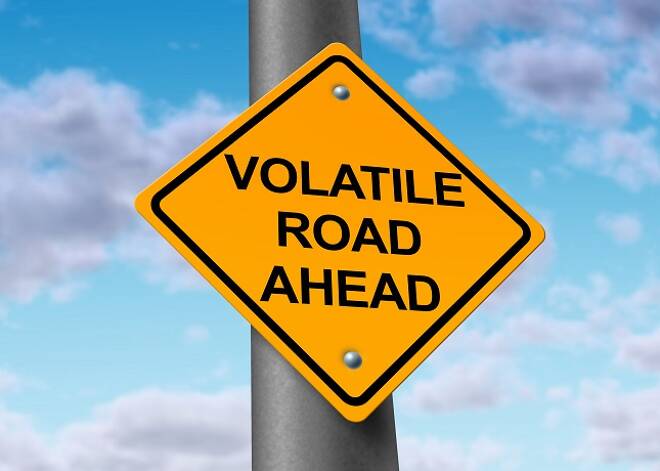Advertisement
Advertisement
Geopolitical Risk and the Never Ending Cycle of Drama
By:
Geopolitical risk has been on the rise and looks to be here for the foreseeable future. With it comes volatility that could build further...
Tariffs
The continued build-up of geopolitical risk has tested even the more optimistic market participants over the summer.
It’s been more than a year since the U.S began a trade war that first introduced tariffs on aluminum and steel.
While the first set of tariffs were wide-reaching, by geography, the U.S administration’s targets were clear. Mexico, Canada, the EU, Japan and, of course, China.
A relatively swift renegotiation of the original NAFTA agreement has left Trump’s focus largely on China.
Unlike, both Canada and Mexico, China’s unwillingness to align with U.S foreign policy and protectionism has ultimately led to, not only an extended trade war but also, a slowdown in the global economy and the beginnings of a currency war.
With fresh tariffs due to be imposed on China at the start of next month, Trump’s unwillingness to make a deal and China’s retaliatory measures suggest that there’s more pain to come.
Brexit
While the U.S – China trade war has gripped the global financial markets, Brexit has certainly been of influence on the Pound and to a lesser extent the EUR and European equity markets.
Not too dissimilar to the failings of the U.S and China to find common ground, both the EU and Britain have struggled to close out an agreement that satisfies all.
As things stand, Britain is heading for a no-deal Halloween departure from the EU. Remarkably, trouble in the world’s 6th largest economy has had a relatively muted impact on risk appetite across the major financial markets.
With the FTSE100 up by 7.8% for the current year, the only evidence of negative sentiment towards Brexit sits within the Pound. At $1.20 levels, a contraction in the UK economy in the 2nd quarter and continued uncertainty over what lies ahead suggests more downside to come.
Boris Johnson has taken over at the helm and appears to have taken a page out of Trump’s Art of the Deal. It remains to be seen just how effective Johnson’s strategy will be.
Elsewhere
Iran
Rumblings in the Middle East appear to have abated, in spite of Iran’s attempts at ruffling the feathers of the West. Fortunately, there’s been little response to Iran’s threat of war, though whether the status quo will continue remains to be seen. Further disruption in the Gulf and breaching of what’s left of the nuclear agreement may ultimately draw the West into an unwanted confrontation.
Italy
Following the prospects of a populist victory in the last Italian general election, Eurozone stability had returned until last week.
Salvini’s call for a snap general election was a reminder, however, that all is not well in European politics. The Establishment looks comfortable for now. How Britain fares outside of the EU will be of particular interest for a number of member states, however. Particularly with Chancellor Merkel on the way out.
Salvini’s latest move comes off the back of increased support for the League. The polls suggest that Salvini’s party could go it alone.
Fortunately for the Establishment, Italy’s League party has little interest in withdrawing from the EUR. For now at least.
For the Eurozone economy, further political disruption comes at a bad time economically.
What’s Next?
If all goes well, the Italian government manages to avoid sinking the world’s 9th largest economy into the abyss.
Brexit is due to take place in just over 2-months. A decision by both sides to attempt to find middle ground would ease the pain for the Pound in particular.
Should the U.S and the West manage to avoid being irked by Iran, it ultimately leaves trade in focus. We’re unlikely to see the U.S and China reach an agreement anytime soon. What the markets would like to avoid, however, is a shift in Trump’s focus to the likes of the EU.
Economists have forecast a contraction in the German economy in the 2nd quarter. The last thing that Germany and the Eurozone needs is tariffs.
On the brighter side, the U.S Presidential Election is in 15-months. No President running for re-election would want to be responsible for sinking the U.S economy.
While Trump may continue to look to place the blame elsewhere, it would be a hard sell. A strong labor market will have to be a must, at a bare minimum…
Will we see the U.S President back down in the months ahead, unlikely…
With so much going on, the volatility in the world of FX is unlikely to abate anytime soon…
About the Author
Bob Masonauthor
With over 28 years of experience in the financial industry, Bob has worked with various global rating agencies and multinational banks. Currently he is covering currencies, commodities, alternative asset classes and global equities, focusing mostly on European and Asian markets.
Advertisement
